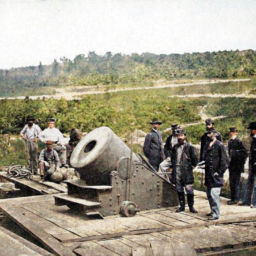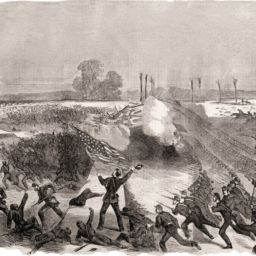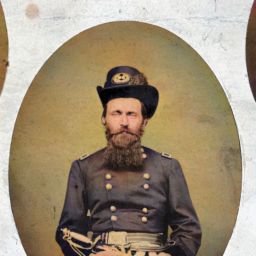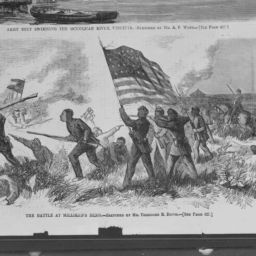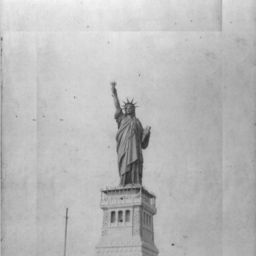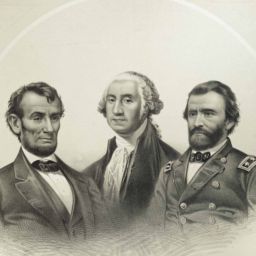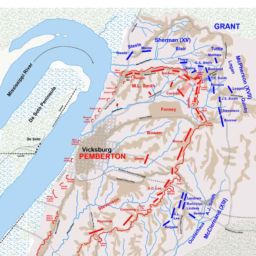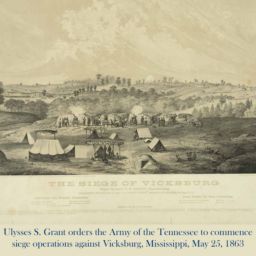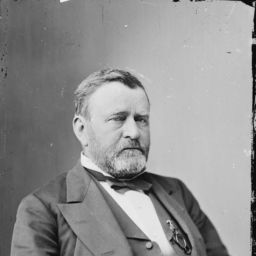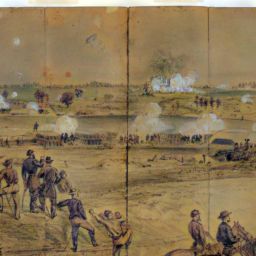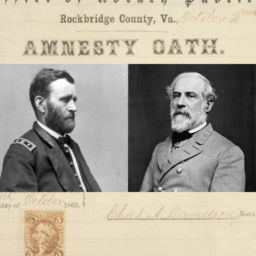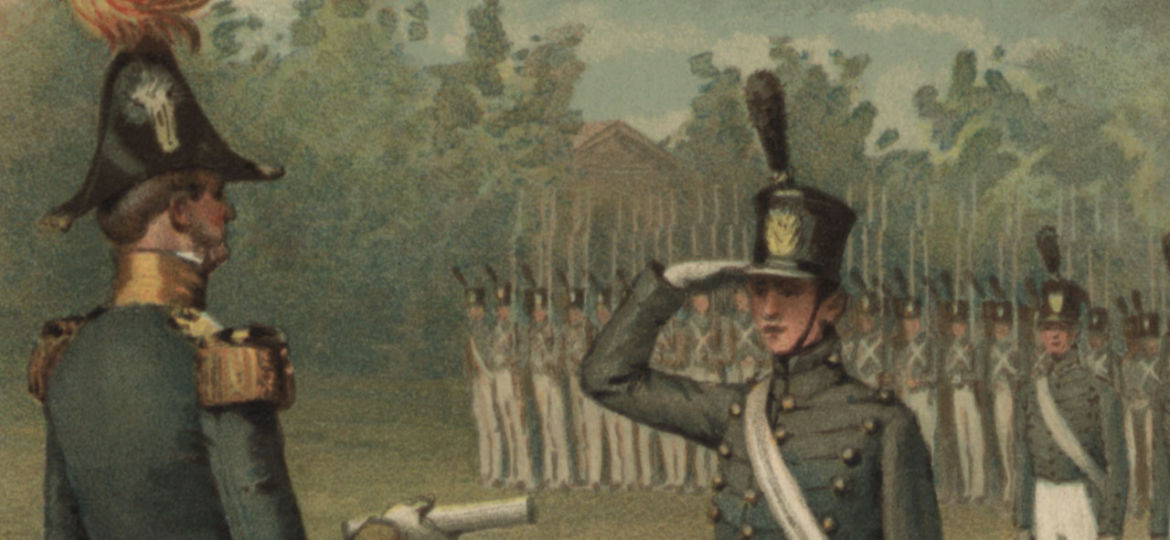
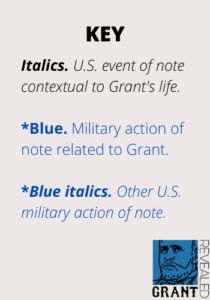
1823. October. Jesse moves the Grants to Georgetown, Ohio, where Jesse has also started a tannery and soon after that built a two-story brick house on the tannery’s block. This house would be Grant’s home throughout his boyhood. As a boy, Grant already preferred going by Ulysses—he disliked the name Hiram and that his initials were H.U.G.—and was referred to by those familiar with him as simply “Ulyss,” or “Lyss,” though as a result other children sometimes taunted him with the similar-sounding epithetic nickname “Useless.”
1823. December 2. President James Monroe outlines the policy later named the Monroe Doctrine: The U.S. recognizes existing European colonies in the Western Hemisphere but therein further European colonization or interference with sovereign states will be deemed a threat to U.S. security.
1835. October 2. The Texas Revolution begins against the Mexican government. It ends on April 21, 1836, and the Republic of Texas is formed but unrecognized by Mexico, and its borders remain disputed.
1836. June 15. Arkansas is admitted to the Union as the 25th state and a slave state, i.e., slavery and the slave trade are permitted in the state.
Fall 1838–spring 1838. Grant attends the Maysville Academy of John Brett Richeson and Jacob Rand, in Maysville, Kentucky.
1837. January 26. Michigan is admitted to the Union as the 26th state and a free state (i.e., neither slavery nor the slave trade are permitted in the state).
1846. September 21. At the Battle of Monterrey (September 21–24), Grant, though a quartermaster, which is not generally a frontline role, rides to the front and charges with his regiment. He is made regimental adjutant. On September 23, Col. John Garland seeks a volunteer to carry a message through enemy-occupied streets to Brigadier General David Emanuel Twiggs, (who carries the nickname “Bengal Tiger”). Grant volunteers and completes the mission, at one point riding on the side of his horse, one foot hooked on the saddle’s cantle and an arm around the horse’s neck.
1850
1851
1852
1853
1854
1854
1855
1855
1856
1857
1858
1859
1860
SOURCES
Chernow, Ron. Grant. New York: Penguin Books, 2017. Kindle.
The Papers of Ulysses S. Grant. Edited by John Y. Simon et al. Carbondale: Southern Illinois University Press, 1967–2012. https://scholarsjunction.msstate.edu/usg-volumes/.


